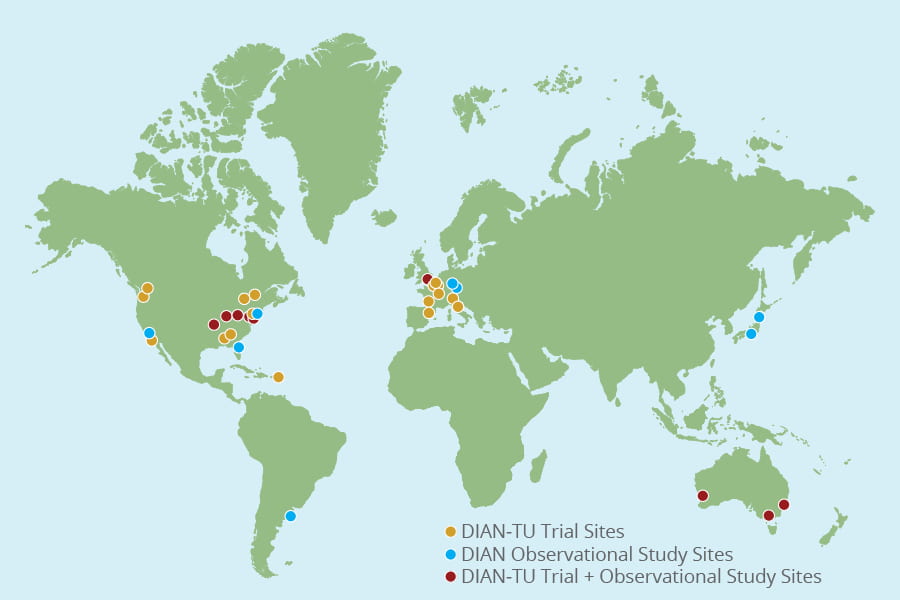Knight Family Dominantly Inherited Alzheimer Network Trials Unit (Knight Family DIAN-TU)
An estimated 5 million people in the U.S. have Alzheimer’s disease, and this number is expected to continue rising in coming years. First identified in 1906, the disease begins with detrimental changes in the physical makeup of the brain and later progresses to symptoms such as memory loss, language impairment, and unpredictable behavior.
In most cases, symptoms first appear when an individual reaches his or her mid-60s or later. Over time, the disease places a large burden on the patient’s family and other caregivers.

Washington University School of Medicine benefits from strong partnerships with institutions such as Barnes-Jewish Hospital and St. Louis Children’s Hospital. As established leaders in the fight against Alzheimers disease, we also benefit from the involvement of organizations such as the Alzheimer’s Association and GHR Foundation. Thanks to the world-class physicians and scientists involved in this work across the university, Washington University’s Knight Family Dominantly Inherited Alzheimer Network Trials Unit (Knight Family DIAN-TU) is poised for success in this critical work. Through decades of Alzheimer’s disease research, scientists have discovered that brain changes associated with the disease including beta amyloid plaque deposits and tau tangles begin a decade or more before symptoms appear.
A number of recent clinical trials have sought to reverse the accumulation of these two proteins over time. However, the failure of these trials underscores the importance of prevention at an even earlier stage, before changes in the brain begin to occur. Now, researchers at the Knight Family DIAN-TU are beginning the DIAN-TU Primary Prevention Trial, a first-of-its-kind clinical trial designed to prevent Alzheimer’s disease. Rather than waiting until patients begin accumulating beta amyloid plaque deposits and tau tangles, this primary prevention trial aims to prevent these early physical changes in participants’ brains. This trial is designed for individuals with specific genetic mutations that cause a rare form of the disease called dominantly inherited Alzheimer’s disease (DIAD). These patients begin showing visible symptoms between the ages of 30 and 60.
If successful, the findings from this small population will help inform preventative measures for the general population at risk of Alzheimer’s as well. There is no cure for Alzheimer’s disease, and searching for a treatment that will slow or halt the disease is a critical priority. Clinical trials are essential to preventing this devastating disease or delaying its age of onset. Your support for the Knight Alzheimer’s Primary Prevention Challenge will help enable this path-breaking clinical trial, designed to provide vital insights into Alzheimer’s disease prevention.